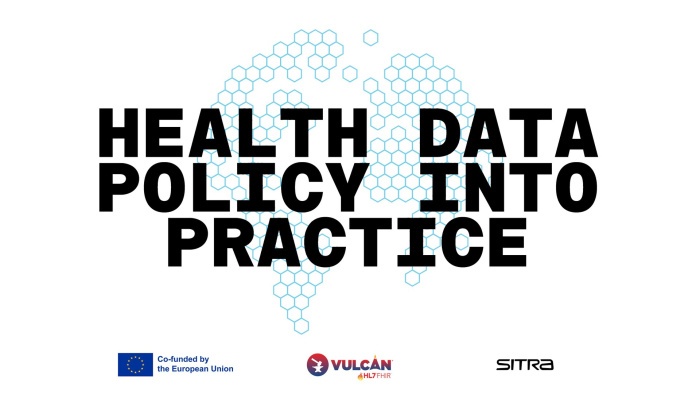Research with Routine Healthcare Data: Germany Aims to Catch Up Quickly
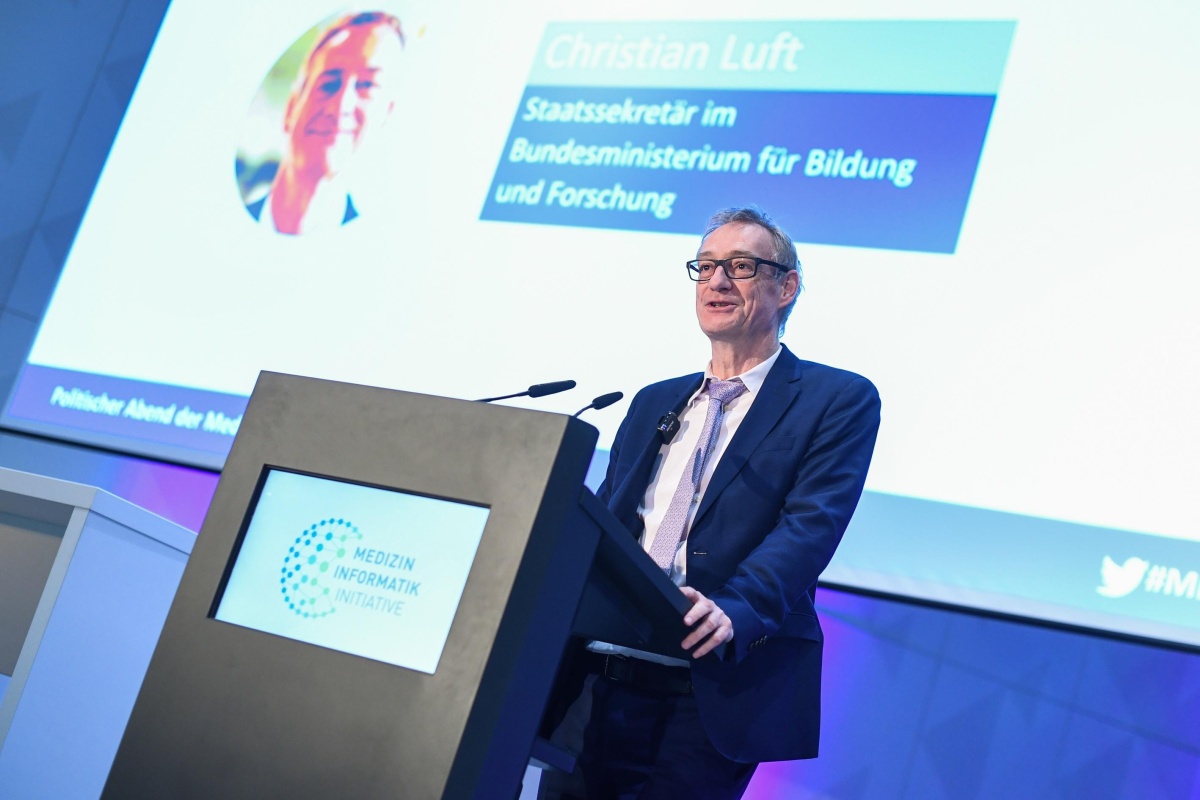
BMBF State Secretary Christian Luft speaks during the Political Evening of the Medical Informatics Initiative on February 13, 2020. © TMF
"The potential of digitalization in the healthcare sector is enormous - for more efficient processes, greater patient safety, and above all, better care," said Christian Luft, State Secretary at the Federal Ministry of Education and Research (BMBF), yesterday at the start of the Political Evening of the Medical Informatics Initiative (MII) of the BMBF. The event programmatically took place in the recently opened FUTURIUM, the "House of Futures" in the Berlin government district. Panelists and participants alike were equally determined to harness the opportunities of data-driven health research for patient care and the science location. Currently, all university hospitals in Germany, together with other non-university research institutions and industrial partners, are working within the MII at over 30 locations to access routine healthcare data nationwide for medical research. To achieve this, the locations organized in four consortia are establishing data integration centers and developing solutions for over a dozen specific use cases. The BMBF invests alone until the year 2021 around 160 million euros in the funding program.
Medical Informatics Initiative Provides Important Impulses for Interoperability
BMBF State Secretary Christian Luft emphasized that the MII has already provided important impulses for standardization in a short time: with a nationally uniform standard text for patient consent, a cross-site core dataset, and the use of HL7 FHIR as a data exchange format. The BMBF announced that it intends to provide the terminology SNOMED CT within the framework of the Medical Informatics Initiative next month to enable important preliminary work for the planned national introduction in 2021. In addition, the concepts of the MII are to be tested within the framework of the new funding measure "Digital Progress Hubs Health" by further inpatient and outpatient providers. According to Luft, the BMBF is also vigorously advocating that the planned electronic patient record, according to SGB V, is research-friendly from the outset: "If Germany is to play a good role as a research and development location, if patients are to benefit not only from less bureaucracy, but above all from more health through digitalization, then the electronic patient record must be designed to be open for research," said Luft.
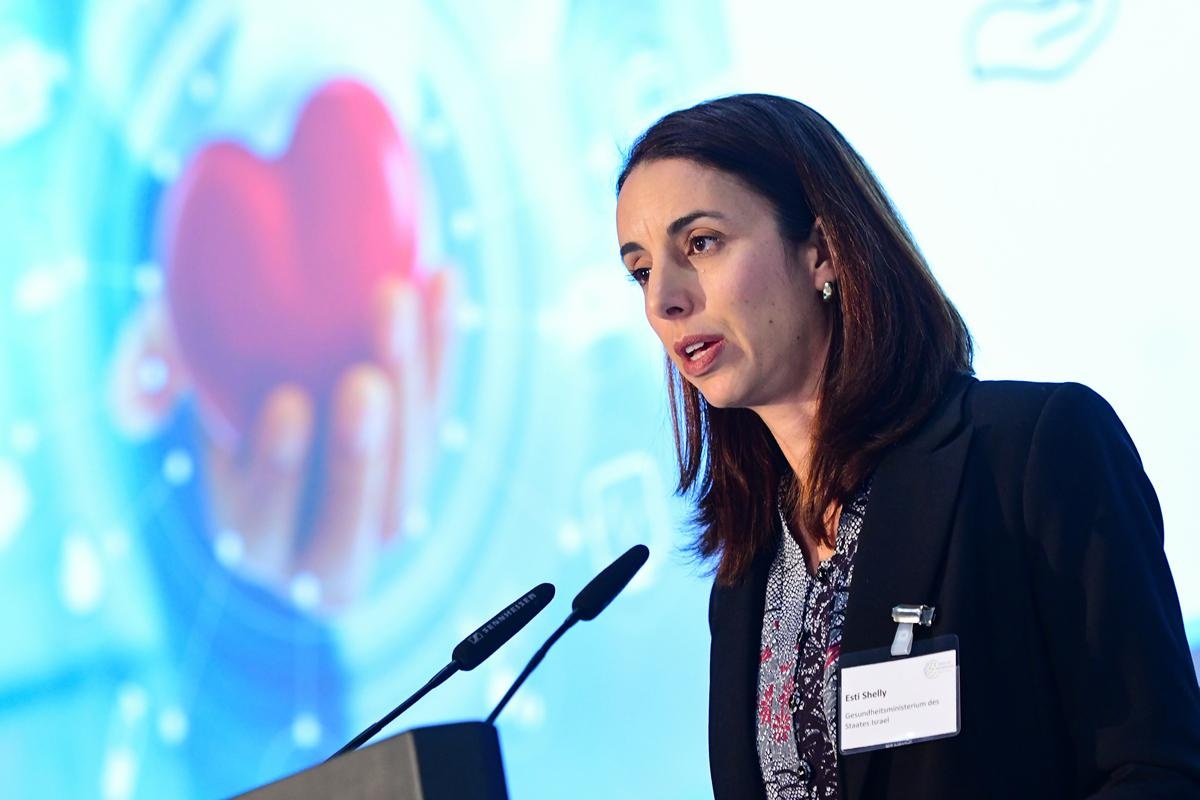
Esti Shelly (Ministry of Health, Israel). © TMF e.V.
Germany's Research Location is Being Restructured
First overviews from a research-related special evaluation of the #smarthealthsystems study by the Bertelsmann Foundation were presented by study leader Dr. Thomas Kostera. According to this, Germany was at the bottom of the league in terms of secondary data use at the time of the study. However, with the legislative adjustments made and pending, as well as the preparatory work of the MII, there are now good conditions to catch up with the leaders.
Israel is one of the few countries where structured data from everyday care are already available nationally for research purposes. In a keynote speech, Esti Shelly, the head of digitization at the Israeli Ministry of Health, reported on the digital transformation of healthcare in Israel. A central success factor is the ability to generate care innovations from the data available on the "Eitan" platform in international standards within an open e-health ecosystem.
With the presentation of the draft Patient Data Protection Act, the discussion on the trusted framework for future use of routine data for medical research in Germany is gaining momentum. Dr. med. Markus Leyck Dieken, managing director of gematik, emphasized the intention to cooperate closely with the Medical Informatics Initiative to maintain a high pace within the digital catch-up race. For this purpose, the gematik CEO presented the further roadmap for an already in 2023 research-compatible electronic patient record:
The electronic patient record will ultimately become an individual biological database of patients with their history. With fundamental diseases, we will be able to discover connections earlier, thanks to the available health data.
Representatives of MII, gematik, and the National Association of Statutory Health Insurance Physicians (KBV) expressed confidence this evening that with the joint commitment to internationally accepted standards, interoperability in the German healthcare system has overcome an important hurdle. KBV Board Member Dr. Thomas Kriedel reiterated the common goal of all stakeholders to quickly achieve a uniform language in digital medicine - from the university hospital to the outpatient physician. Agreement on the terminologies SNOMED CT and LOINC is an important milestone in this regard.

Prof. Hans-Ulrich Prokosch (National Steering Committee of the MII). © TMF
Creating a Trustworthy Framework for Research
In a panel discussion moderated by Ärzteblatt editor Rebecca Beerheide, the societal acceptance of research data donation was the focus. Prof. Hans-Ulrich Prokosch (Friedrich-Alexander University Erlangen-Nuremberg) from the National Steering Committee of the MII warned against too restrictive access to medical information contained in the EPR: "The possibility of using anonymized data via the planned research data center for social data is not suitable for all research questions. We urgently need to link this with consent-based research projects that use pseudonymized data, for example, to track the long-term effects of diseases and therapies within the framework of long-term studies." The Medical Informatics Initiative has already established a sustainable, internationally fully compatible research data infrastructure for this purpose, which can serve as a one-stop gateway for validated and complete clinical care data through a national access and patient portal.
For CDU/CSU research politician Stephan Albani MdB, the MII is an important backbone of digitalization in the German healthcare system. The next step is to initiate comparable investments in the breadth of the healthcare landscape. Transparency is crucial for further acceptance. The health policy spokeswoman for the B90/Greens faction, Maria Klein-Schmeink MdB, supported the desire of the MII participants to quickly achieve a nationwide uniform legal practice for obtaining patient consent. However, engaging in a serious societal debate about future research data usage is also important. All stakeholders, but especially patient organizations, must be involved in this.
According to Prokosch, the MII already creates an effective and trustworthy legal framework that can serve as a blueprint: "In the MII, we have shown that our processes and data structures for data integration are suitable. Data usage is solely based on informed consent; data is only aggregated in anonymized or pseudonymized form. Usage requests are strictly reviewed by a 'Use & Access Committee' for compliance with all technical and organizational data protection requirements and must always be approved by an independent ethics committee." The crucial next step is for data protection authorities to reach an agreement on the draft of a nationally uniform consent form submitted by the MII. According to representative surveys, people's willingness to donate data is high. "It must also be possible in Germany for us to ask people in a legally secure manner whether they would like to support medical research with their treatment data," Prokosch concluded.
Photo Galery
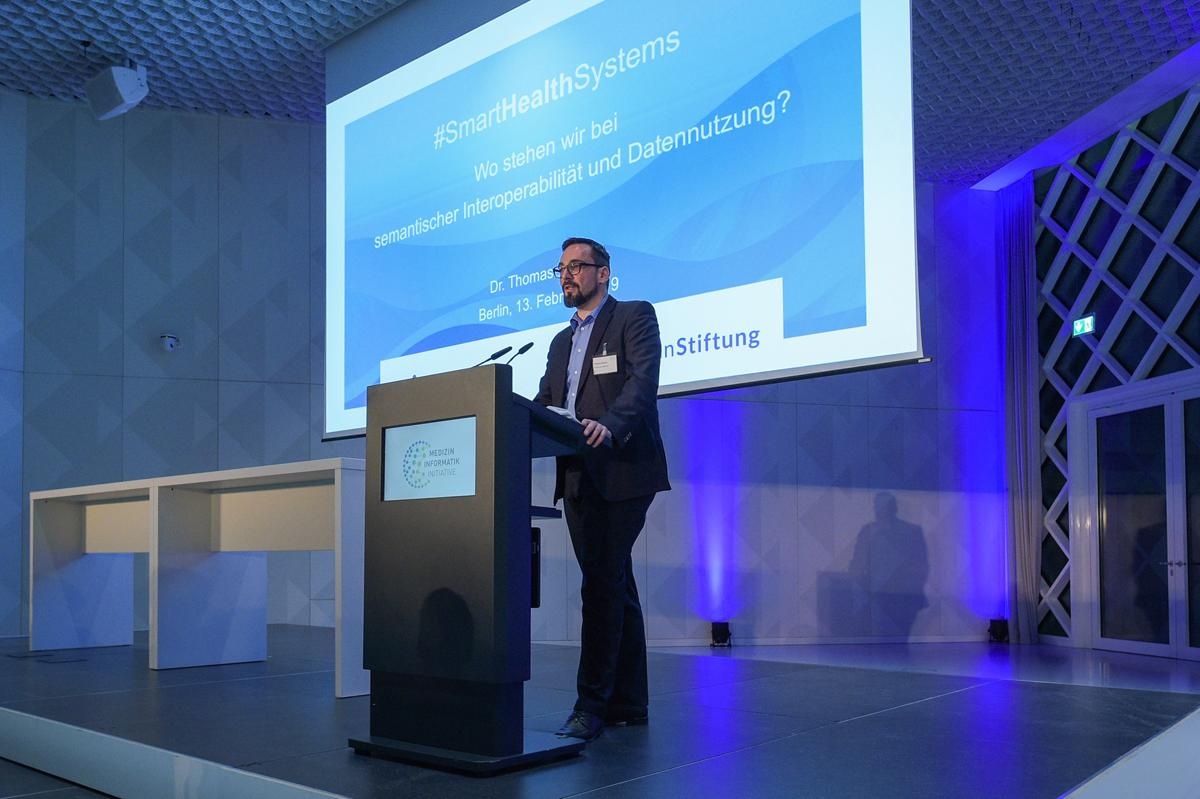
Dr. Thomas Kostera (Bertelsmann Foundation). © TMF

Dr. med. Markus Leyck Dieken (gematik). © TMF

Stephan Albani-MdB (CDU/CSU Group). © TMF
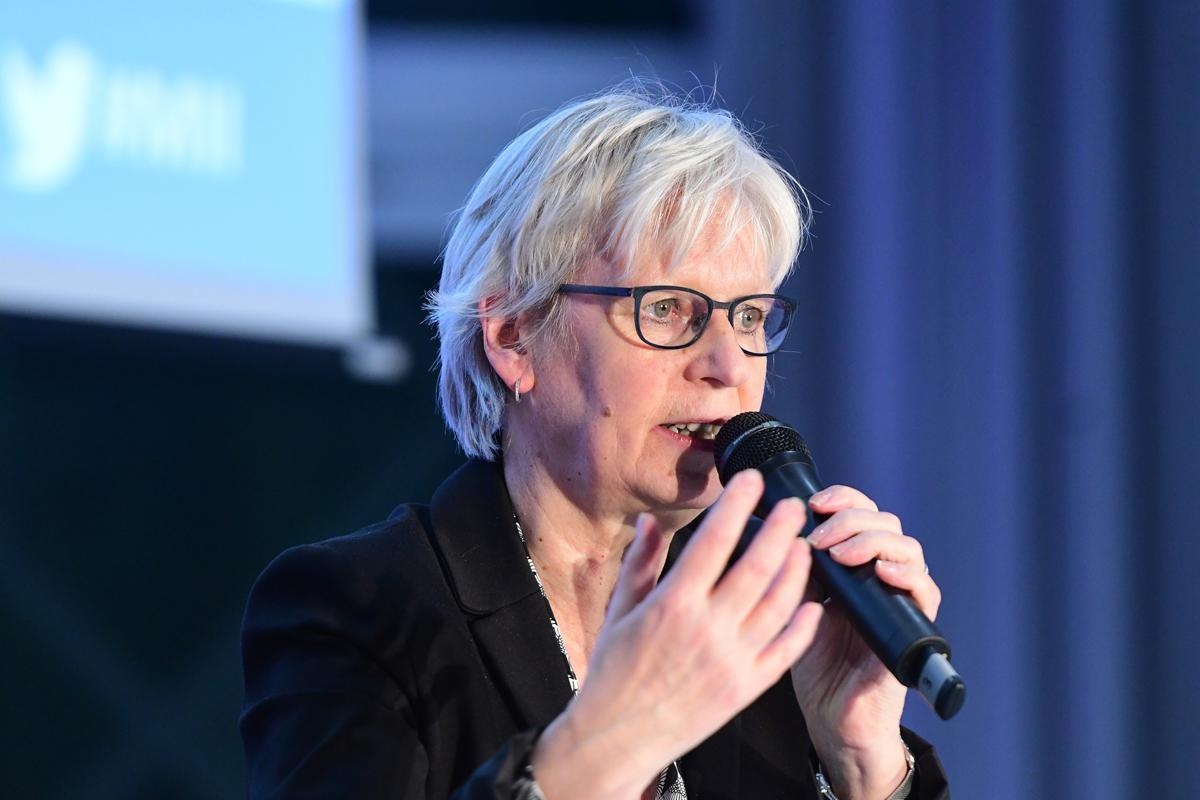
Maria Klein-Schmeink MdB (B90/Greens Group). © TMF

Dr. Thomas Kriedel (Federal Association of Statutory Health Insurance Physicians). © TMF

Rebecca Beerheide (German Ärzteblatt). © TMF

The panel discussion at the political evening of the Medical Informatics Initiative. © TMF

Many spectators were present at the political evening of the Medical Informatics Initiative. © TMF
Background
The Medical Informatics Initiative (MII) aims to improve research opportunities and patient care through innovative IT solutions. These are intended to enable the exchange and use of healthcare, clinical, and biomedical research data across the boundaries of institutions and locations. The Federal Ministry of Education and Research (BMBF) is funding the MII until 2021 with approximately 160 million euros. In the four consortia DIFUTURE, HiGHmed, MIRACUM, and SMITH, all institutions of university medicine in Germany are working at over 30 locations together with research institutions, companies, health insurance companies, as well as patient representatives to develop the framework conditions so that insights from research can directly benefit patients. Data protection and data security are the highest priorities.
A coordination office is responsible for the national coordination of developments within the MII, which is operated by the Technology and Methods Platform for Networked Medical Research (TMF) together with the Association of Medical Faculty Days (MFT) and the Association of University Clinics in Germany (VUD) in Berlin.
For more information, visit: www.medizininformatik-initiative.de
Press Contact
Stefan Rabe, Sophie Haderer
Phone: 030 − 22 00 24 730,
E-Mail: presse@medizininformatik-initiative.de
Downloads
| Anhang | Size |
|---|---|
| Dr. med. Markus Leyck Dieken (gematik): How does gematik work in the future? | 869.24 KB |

